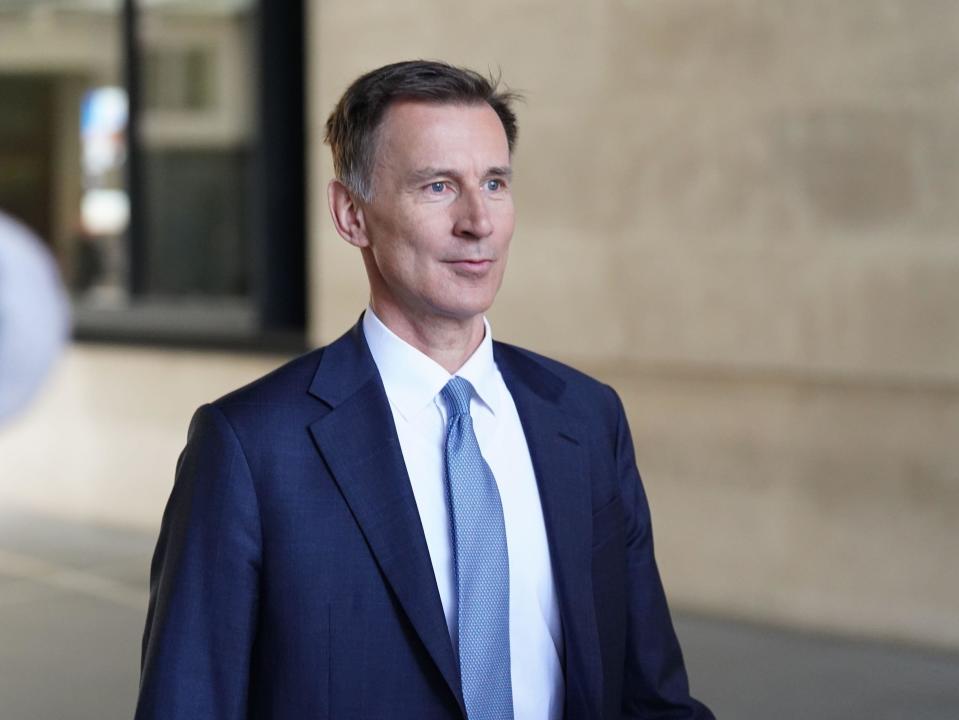

European stock markets were mixed on Tuesday as new data showed that UK borrowing rose in October whilst productivity in Britain has fallen.
In London, the FTSE 100 (^FTSE) was trading 0.5% lower by noon trade, as a stronger pound weighed on the index. The CAC (^FCHI) lost 0.2% in Paris, and the Frankfurt DAX (^GDAXI) was 0.2% higher.
According to the Office for National Statistics (ONS), the £14.9bn of public sector net borrowing, excluding banking groups, was higher than both the consensus forecast and the OBR’s March forecast of £13.7bn ($17.18bn).
This was also £4.4bn more than in October 2022, and more than September’s £14.6bn.
It is the second highest October borrowing since monthly records began in 1993, after October 2020 when the pandemic pushed the deficit up to almost £20bn.
However, borrowing so far this financial year is almost £17bn lower than forecast, providing some room for policy changes in Jeremy Hunt’s autumn statement on Wednesday afternoon.
The chancellor said: “We met our pledge to halve inflation, but we must keep on supporting the Bank of England to drive inflation down to 2%. That means being responsible with the nation’s finances.
“At my Autumn Statement tomorrow, I will focus on how we boost business investment and get people back into work to deliver the growth our country needs.”
Read more: Autumn statement: What to expect from Jeremy Hunt’s latest budget
It came as the ONS also revealed that public sector net debt reached £2.6tn, equivalent to around 97.8% of the UK’s annual gross domestic product (GDP).
This is 2.3 percentage points higher than in October last year and remains at levels last seen in the early 1960s.
Meanwhile, UK productivity declined by 0.1% in the three-month period to September, compared to the previous year, highlighting the weakness of the economy.
Bart van Ark, managing director of The Productivity Institute, said: “Another poor quarterly performance for productivity reinforces our view that Britain is in urgent need of a national agenda to double annual productivity over the next 10 years. We anticipate growth is likely to stall for 2023 on the whole.”
Live11 updates
Watch: How does inflation affect interest rates?
Download the Yahoo Finance app, available for Apple and Android.











